
Yanka Kupala
State University of Grodno
Super User
Rector of Yanka Kupala State University took part in the congress of the Belarusian Society "Knowledge"

An extraordinary congress of delegates of the Republican State-Public Association "Belarusian Society" "Knowledge"gathered delegates from all over the country in order to discuss the prospects for the further development of the organization.
Among the participants of the event were the head of the Presidential Administration Igor Sergeyenko, acting chairman of the Knowledge society Valery Borodenya, rector of the Academy of Management under the President of the Republic of Belarus Vyacheslav Danilovich, representatives of state bodies and organizations from all over Belarus. The congress of the association was also attended by the rector of Yanka Kupala State University of Grodno Irina Kiturko. On the agenda delegates had a discussion of the results of the organization's work from 2018 to 2021 and the election of the board of the Belarusian Society “Knowledge”. The chairman of the association was the Dean of the Faculty of Philosophy and Social Sciences of BSU Vadim Gigin.
The development vectors of the organization were also identified, which received new areas of work. Despite the fact that the main task of "Knowledge" is to disseminate scientific knowledge, strengthen their influence on the development of innovative thinking and social activity of citizens, the Head of State instructed to strengthen the role of the association in the dissemination of socio-political, historical, cultural, popular science information both among Belarusians and outside the country.
A lecture on traffic rules was held for Yanka Kupala State University staff
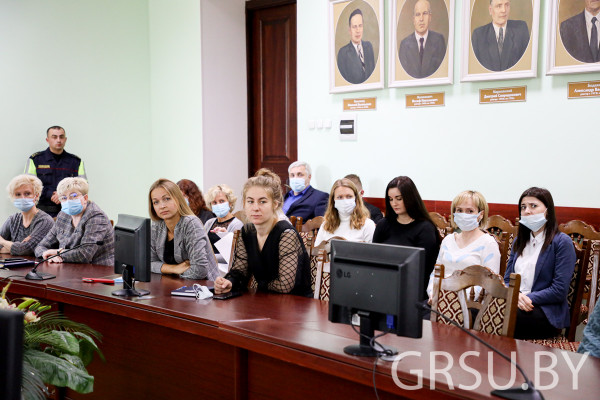
Inspectors of the traffic patrol service of the traffic police department of the regional executive committee Alexander Krasochka and Alexander Tybulevich informed the staff of Yanka Kupala State University of Grodno about the dangers that can meet vulnerable road users. It includes pedestrians, cyclists and those who move on scooters, sigways and other modern vehicles.
The lecture is highly relevant given that in the near future the daylight hours will be greatly reduced, which means that the probability of traffic accidents will increase. The inspectors recalled the importance of using flickers and asked not to forget about them. Alexander Krasochka noted that you need to be especially attentive at pedestrian crossings. Contrary to popular belief, zebra crossing is far from the safest place on the road.
The lecture attracted vivid interest, university staff asked questions that related to administrative responsibility, traffic rules for cyclists, the state of the road surface, and the processing of the Euro Protocol. At the end of the meeting, Alexander Krasochka noted that if controversial issues arise, you can always contact the regional traffic police.
Irina Zhuk, the student of Yanka Kupala State University of Grodno, won the silver at competitions in Germany
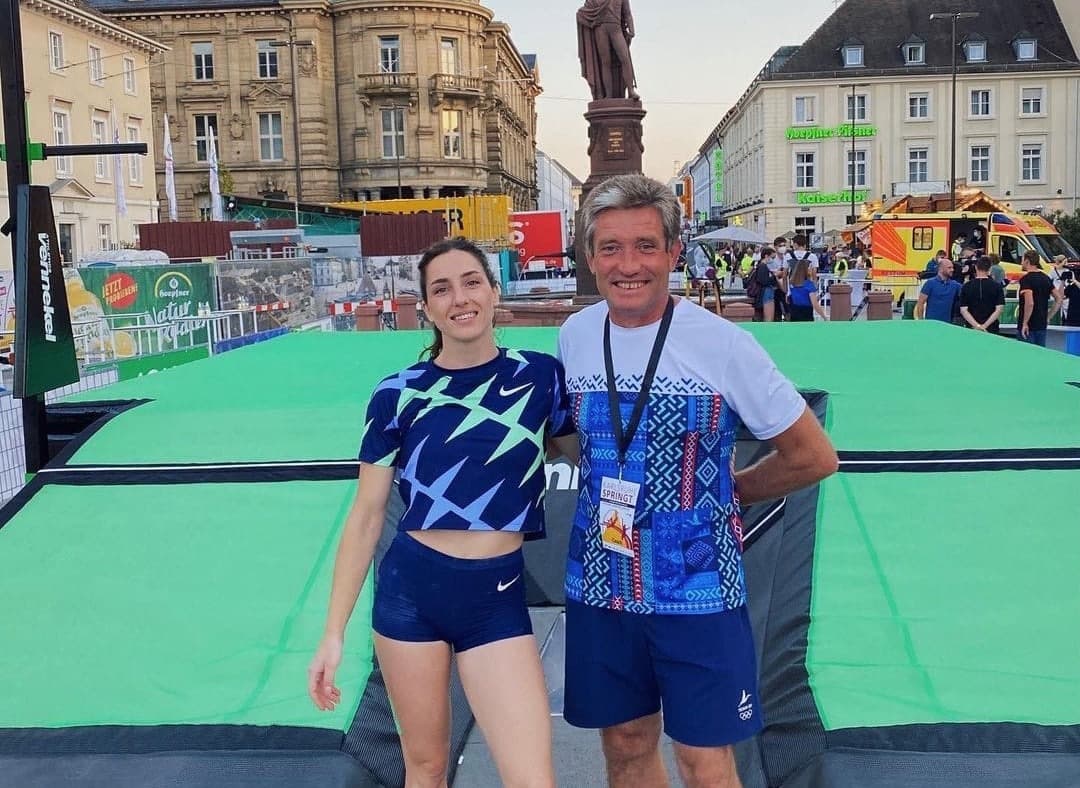
Last Saturday, the Karlsruhe Springt tournament was held in the German city of Karlsruhe. Irina Zhuk, a student at Yanka Kupala State University of Grodno, entered the pole vault sector.
The athlete showed herself perfectly and won a silver medal with a result of 4.66. The performance had a tense moment - the YKSUG student took the right height not from the first time. She submitted from the second exit to the run.
Irina Zhuk represents Belarus and her native university with honor at competitions of various levels. This May she broke the record of Belarus in outdoor competitions during the Diamond League stage in Doha, the athlete took a height of 4,74 m. In addition, Irina Zhuk took part in the Olympic Games held in Tokyo.
We heartily congratulate Irina on a new award and wish further success!
Yanka Kupala State University of Grodno celebrates 19th anniversary of BRYU
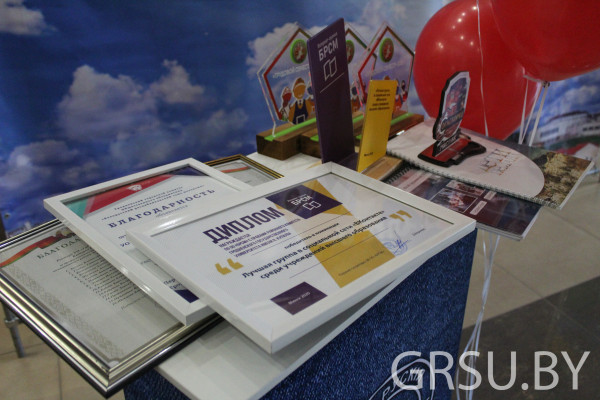
For 19 years, the Youth Union has been actively participating in the life of the country. BRYU was born on September 6, but the celebration at Yanka Kupala State University of Grodno covered several days, each was marked with a certain event.
Students and teachers rather enjoyed the kind action "We are already 19." There were interactive entertainment events and photo zones prepared by BRYU activists in the University. Anyone could come up, take a memory photo and get a sweet prize.
"Students made up small contests in campuses. Also for the birthday, a student party was held, where the guys could relax and have a talk in an informal way. But the celebration of BRYU birthday included not only entertaining moments. As part of the celebrations, an open dialogue was held "BRYU: yesterday, today, tomorrow" with the Vice-rector for educational work of Yanka Kupala State University Vasily Senko", said Olga Rusilko, secretary of the primary organization of BRYU of Yanka Kupala State University of Grodno.
Members of the Youth Union take an active part in the life of the university - it is difficult to imagine any events without their participation. We wish them to keep moving forward without losing their labor enthusiasm and even more creative ideas!
International online courses were held at Yanka Kupala Sate University of Grodno with the support of The International Summer School at University of Oslo
Representatives of Yanka Kupala State University of Grodno took part in the online training "Radiation protection, environmental monitoring and radioactive waste management"

The first classes of advanced training courses for teachers were conducted at Yanka Kupala State University of Grodno
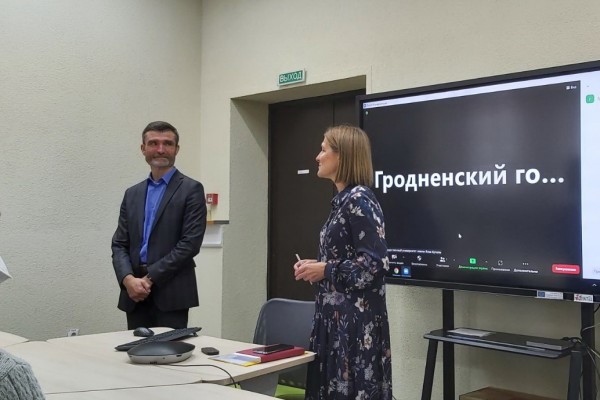
Nuremberg gingerbread, German sausages, Swedish sweets, Polish waffles, pancakes with cottage cheese and honey: an international evening brought together the students of the Summer School of the Russian Language
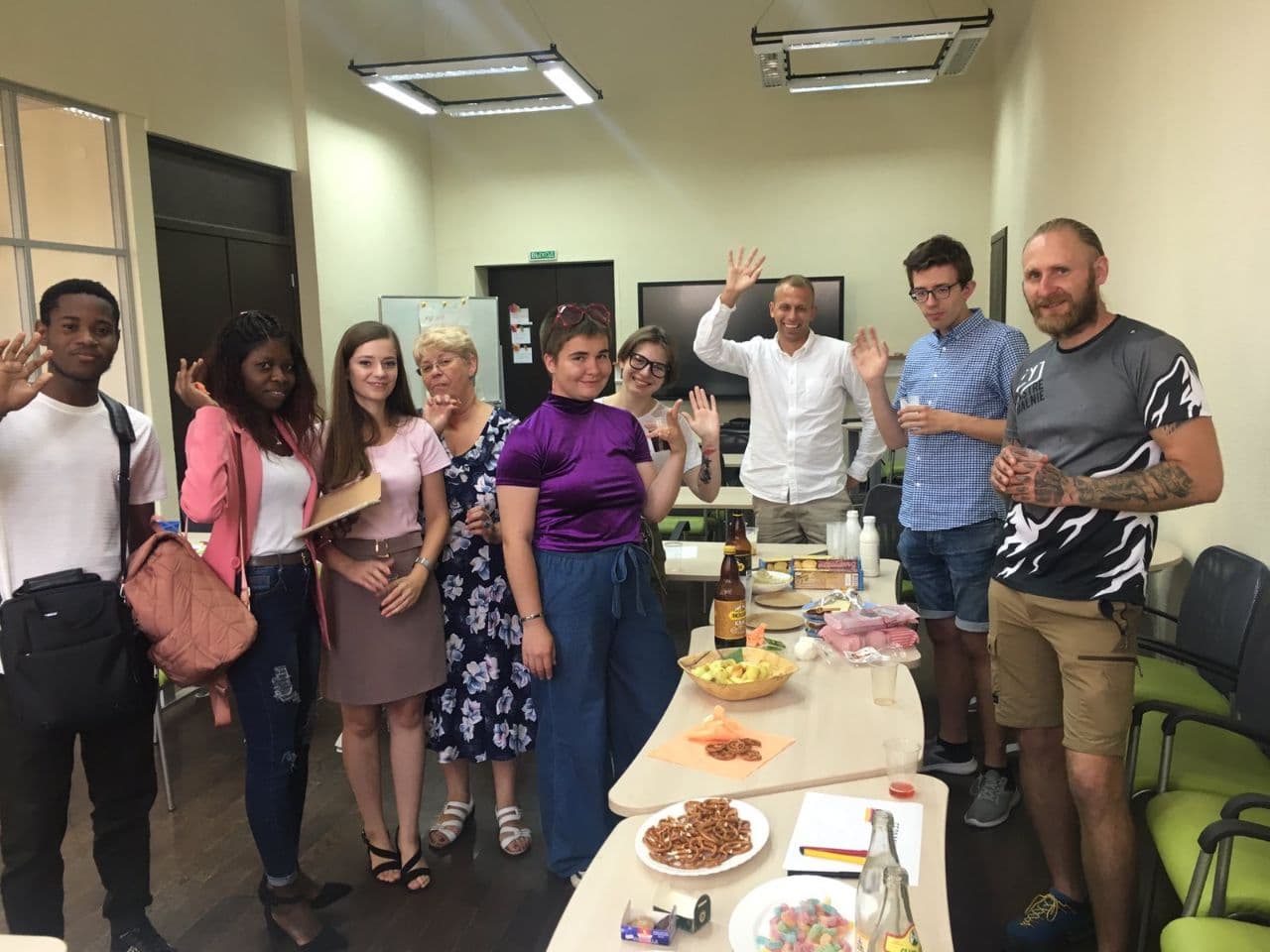
The international evening, where each participant of the Summer School was able to present himself, the country and knowledge of the Russian language, was held at the Yanka Kupala Grodno State University on August, 10 in an online and offline format.
Germany, Italy, China, Poland, Sweden – the countries that were represented at the thematic event by the students of the Summer School.
- The summer school of the Russian language is essentially international. And respect for national peculiarities and traditions is one of the principles of successful intercultural communication, – said Inna Samoilova, head of the Department of Language Training of Belarusian and Foreign Citizens. – This event is aimed at popularizing youth creativity, activating educational activities for the study of the Russian language.
According to Irina Kraskovskaya, senior lecturer of the Department of Language Training of Belarusian and Foreign Citizens, students have been preparing for the international evening for a week. The lottery helped to determine the country for the presentation:
– It is very interesting when the participants of the Summer School talk not about their country, but about each other's homeland. This contributes to cultural exchange and the creation of a friendly atmosphere in an international team. т
In addition to the presentation of countries, the students of the school brought their own national dishes. German sausages, gingerbread cakes from Nuremberg, sweets from Sweden, various types of Polish waffles, pancakes with cottage cheese and honey, Belarusian marshmallows, kvass and kefir were able to try everything. During the evening, the participants of the Summer School made a real gastronomic journey.
Today, on August 11, students will learn about Belarusian national dishes during a language cafe, and tomorrow, on August 12 – during a master class on their preparation.
Foreign guests will study Russian at Yanka Kupala Grodno State University until August 13.
Yanka Kupala State State University summed up the results of the Summer Academy of the Russian Language-2021
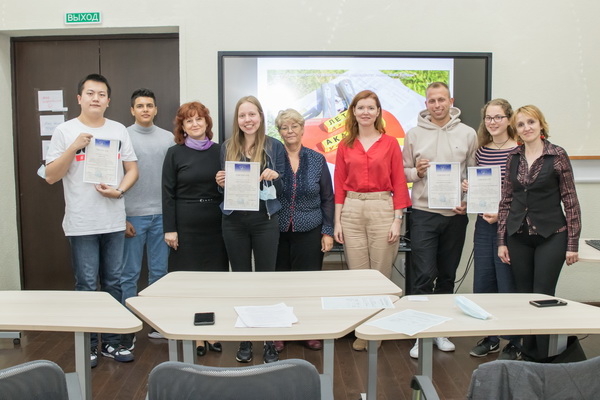
For two weeks, foreign guests from Germany, China and Sweden not only studied Russian, but also conducted research in the field of applied linguistics. On Friday, August 27, the participants of the Summer Academy defended their scientific projects and received certificates.
The result of the implementation of the educational program at the Summer Academy was the preparation of linguistic projects and their defense. Students of the Russian language under the guidance of teachers of the Department of Language training of Belarusian and foreign citizens for two weeks studied the nominations of shops in Grodno and the nominations of public catering dishes in Grodno in semantic, component and etymological aspects. After the training, the students presented their projects to the expert commission and told about the results of the work done in Russian.
– All the students demonstrated not only a high level of mastery of the Russian language, but also formed skills of independent research work. The projects that were prepared by foreign students in two weeks, according to the degree of study of the material, correspond to a good course work, on which our students work throughout the academic year. This shows that the students are motivated, they approached the research work very seriously, with a high degree of responsibility – " said Inna Samoilova, head of the Department of Language Training of Belarusian and Foreign Citizens.
The guys also shared their impressions about the experience they received at the Yanka Kupala State University.
Yang Cheng from China is a 3rd-year student of BSU, majoring in "World Economy", has been studying Russian for two years:
– While studying at the Summer Academy, I gained useful experience in conducting scientific research, because in the new academic year I will have to prepare a course work. Every day, for two hours in the classroom and then for two hours on my own, I was engaged in research of the nominations of stores in the city of Grodno. It was also very interesting to communicate with other participants of the Summer Academy-representatives of Sweden and Germany. It was also important for me to get acquainted with the city of Grodno, because I didn't know anything about it before.
Russian Russian teacher Eric Malmgren from Sweden, who works as a tour guide, said that before coming to Belarus, he studied Russian only online:
– It was important for me to plunge into the language environment, so I studied at the Summer School of the Russian Language, and then stayed at the Summer Academy. At the Summer Academy, he devoted a lot of time to completing homework and research work. I didn't have enough time to go to the zoo or to the cinema, but I think that I have significantly improved my Russian.
Future ecologist Marlene Westeker from Germany took online training at the Summer School of the Russian Language this summer, and then came to Grodno and continued studying the great and mighty within the walls of Kupala University at the Summer Academy:
– I think that each of us has improved his Russian during his studies at the Summer Academy and learned a lot about Belarus, Grodno, and the university. My expectations from the training were met. If there is an opportunity, I will come here again next year.
The teachers received feedback from the project participants. The students told what they liked most during the training, expressed their wishes and shared their plans. The event ended with the presentation of personal certificates.
Help:
The Summer Academy of the Russian Language at the Yanka Kupala State University was organized for the second time. In the period from August 15 to 28, 2021, foreigners studied the Russian language and conducted research on applied linguistics. In addition, they were offered a cultural program that helped them to fully immerse themselves in the language environment.
The project was organized by the Department of Language Training of Belarusian and Foreign Citizens of the Faculty of Pre-university Training.
Students of Yanka Kupala State University of Grodno can have lunch in the canteens of the University at a discount
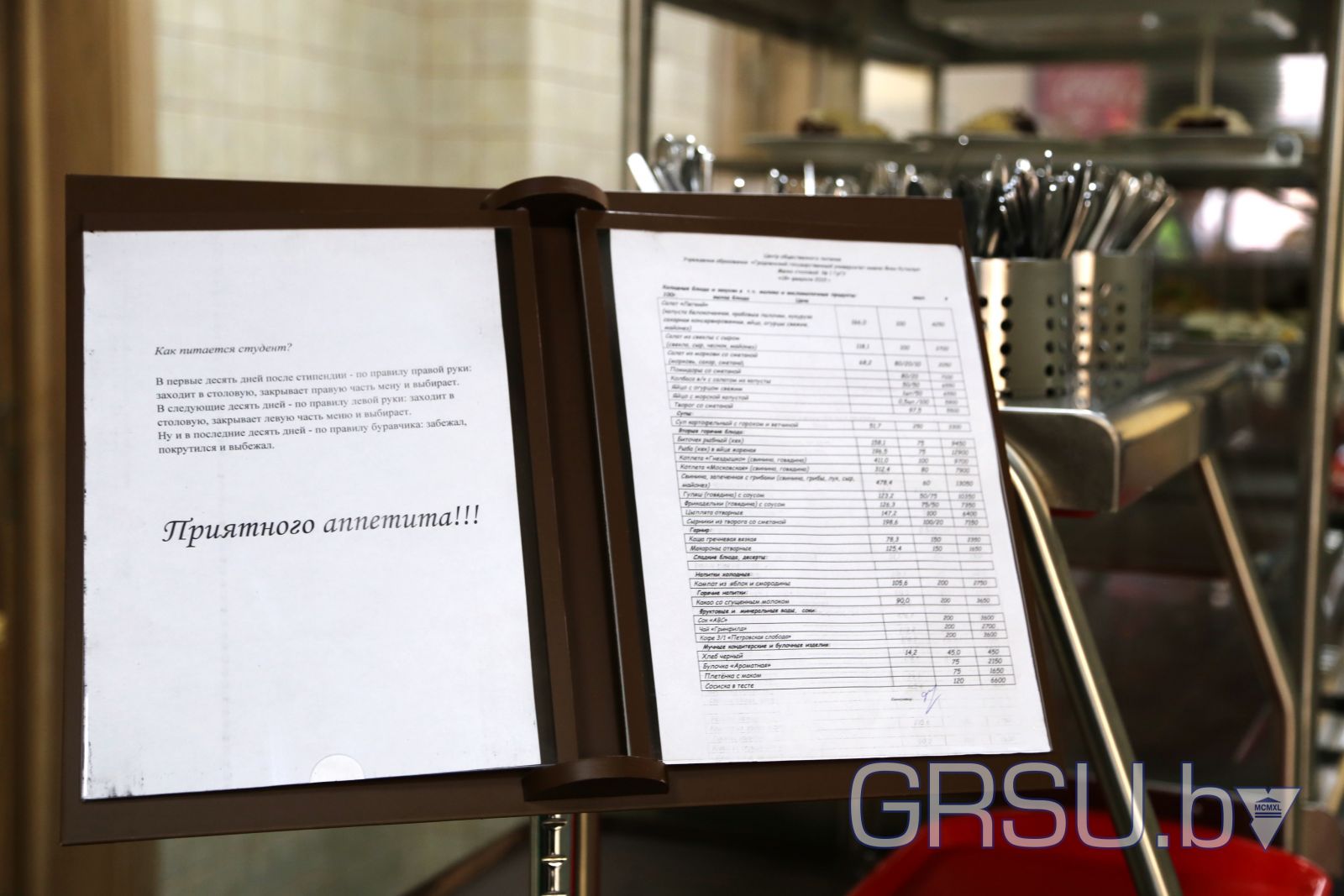
At present students can have lunch not only tasty, but also profitable. A 10% discount applies to all full-time students. To get it, you need to provide a student card.
The university takes care that the students have a hearty and healthy lunch.
Graduate students and master students, students of colleges of Yanka Kupala State University of Grodno can also have lunch at a discount. It is enough to provide a confirming document. This opportunity appeared thanks to the changes made to the resolution of the Ministry of Antimonopoly Regulation and Trade of the Republic of Belarus No. 66 dated August, 13, 2018.
We make sure that it is profitable and comfortable for the children to have lunch. The main thing is that students do not forget to take student cards.
The discount will apply to all products of our own production, and the documents must be presented to the cashier when calculating.







































